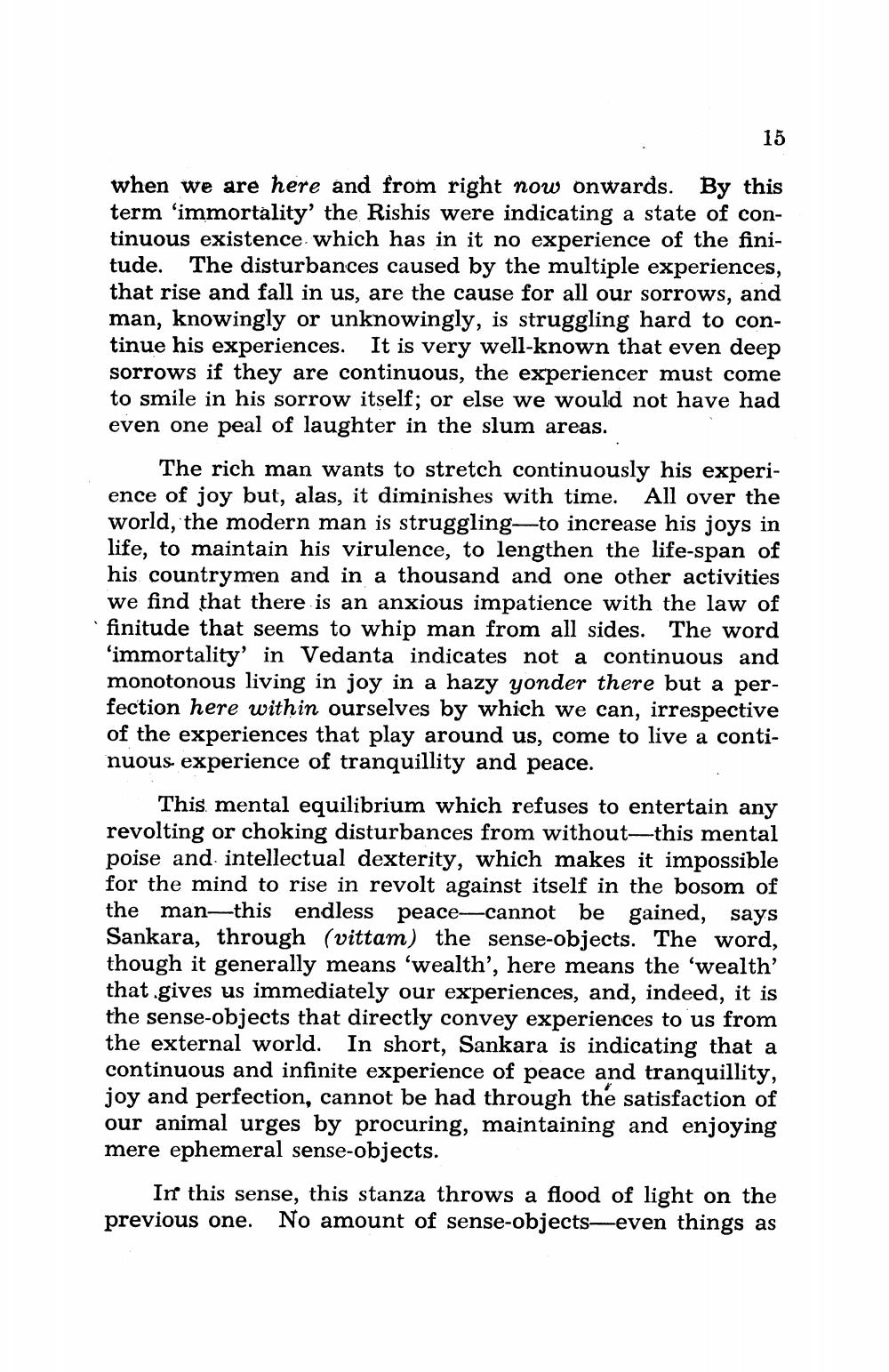________________
15
when we are here and from right now onwards. By this term 'immortality' the Rishis were indicating a state of continuous existence which has in it no experience of the finitude. The disturbances caused by the multiple experiences, that rise and fall in us, are the cause for all our sorrows, and man, knowingly or unknowingly, is struggling hard to continue his experiences. It is very well-known that even deep sorrows if they are continuous, the experiencer must come to smile in his sorrow itself; or else we would not have had even one peal of laughter in the slum areas.
The rich man wants to stretch continuously his experience of joy but, alas, it diminishes with time. All over the world, the modern man is struggling-to increase his joys in life, to maintain his virulence, to lengthen the life-span of his countrymen and in a thousand and one other activities we find that there is an anxious impatience with the law of finitude that seems to whip man from all sides. The word 'immortality' in Vedanta indicates not a continuous and monotonous living in joy in a hazy yonder there but a perfection here within ourselves by which we can, irrespective of the experiences that play around us, come to live a continuous experience of tranquillity and peace.
This mental equilibrium which refuses to entertain any revolting or choking disturbances from without-this mental poise and intellectual dexterity, which makes it impossible for the mind to rise in revolt against itself in the bosom of the man-this endless peace-cannot be gained, says Sankara, through (vittam) the sense-objects. The word, though it generally means 'wealth', here means the 'wealth' that gives us immediately our experiences, and, indeed, it is the sense-objects that directly convey experiences to us from the external world. In short, Sankara is indicating that a continuous and infinite experience of peace and tranquillity, joy and perfection, cannot be had through the satisfaction of our animal urges by procuring, maintaining and enjoying mere ephemeral sense-objects.
In this sense, this stanza throws a flood of light on the previous one. No amount of sense-objects-even things as




